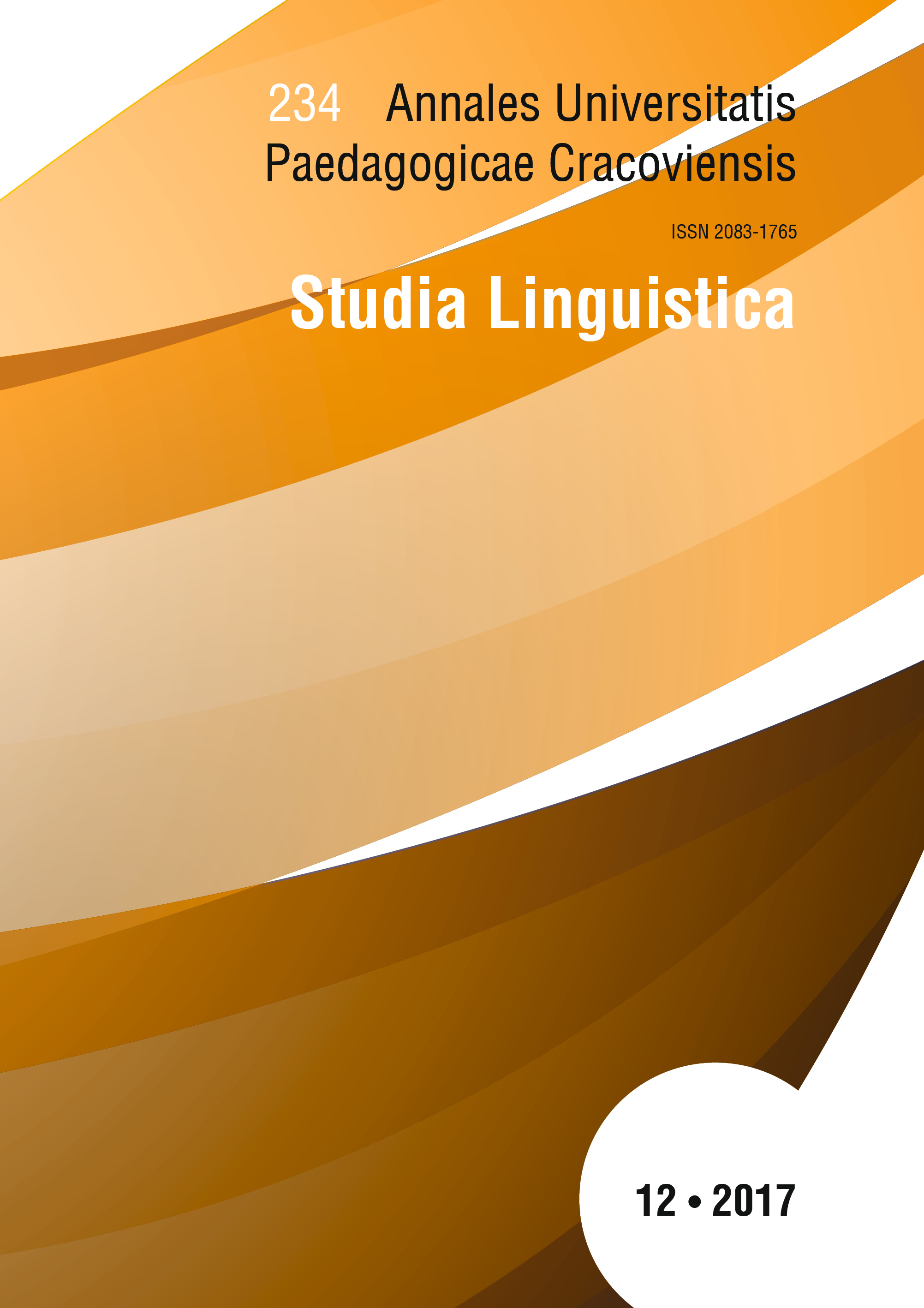The notion of tenderness, as understood by Pope Francis, against the background of linguistic data
Main Article Content
Abstract
The paper, inspired by the apostolic exhortation Amorislaetitia (2016) by Pope Francis, is devoted to the notion of tenderness in the Polish language, as compared with its equivalents in other European languages, mentioned in the translations of Pope Francis’ exhortation: Italian tenerezza, French tendresse, English tenderness, German Zärtlichkeit, Russian nežnost’. Etymologies of these words, not only from the Romance languages, but also German and Russian names, are associated with the notions like gentleness and fragility, which refer to the attitude towards another person, expression of the feeling, as well as the gentle way of treating another person. In that respect, Polish differs from the other languages. The image of tenderness shaped by the Polish word czułość (etymologically connected with the verb czuć - tofeel) directs attention to the aspect of sensitivity and empathy with another person, focusing on the condition, situation in which the person finds himself/herself, as well as their needs. It is an important aspect, which is underestimated during the first reflection on this notion, as it is dominated by the meaning of expression of the feeling.
Downloads
Article Details
Author, submitting a text to the editorial board of the journal “Annales Universitatis Paedagogicae Cracoviensis. Studia Linguistica", certifies that the content of the article has not been published so far and that the work does not violate in any way the copyright or related rights of other person, as well as other rights of third parties, and that no one's rights to the work (or any part thereof) have been missed. After signing the contract, the property rights to the published materials are transferred to the University of the National Education Commission, Krakow.
“Annales Universitatis Paedagogicae Cracoviensis. Studia Linguistica” is an open access journal, and all its content is made available free of charge to users and institutions under the Creative Commons CC-BY-NC-ND 4.0 license (attribution, non-commercial use, no derivative works). Under this license, the authors agree that their work may be lawfully reused for any purpose, except for commercial purposes, without the prior consent of the author or publisher. Everyone can read, download, copy, print, distribute and process these works, provided that the author's marking and the original publication place are correct. Published texts may not be used to create derivative works (e.g. to translate and publish in another language without the consent of the publisher). This is in line with the BOAI (Budapest Open Access Initiative) definition. "Studia Linguistica" does not charge for submitting or processing articles.
References
Amoris laetitia. Posynodalna adhortacja apostolska papieża Franciszka, 2016, Kraków.
Google Scholar
Bartmiński J., 2006, Językowe podstawy obrazu świata, Lublin.
Google Scholar
Bartmiński J., 2014, Jakie wartości współtworzą językowy obraz świata Słowian?, [w:] Tegoż, Polskie wartości w europejskiej aksjosferze, Lublin, s. 21–28.
Google Scholar
„Etnolingwistyka. Problemy języka i literatury”, 2008–2013, red. J. Bartmiński, t. XX–XXV.
Google Scholar
Ernout A., Meillet A., 1939, Dictionnaire étymologique de la langue latine, Paris.
Google Scholar
Kluge F., 1973, Etymologisches Wörterbuch der deutsche Sprache, Berlin–New York.
Google Scholar
Šapošnikov A.K., 2010, Etimologičeskij slovar’ sovremennogo russkogo jazyka, t. II, Moskva.
Google Scholar
Wierzbicka A., 1998/2007, Understanding culture through their key-words: English, Russian, Polish, German, Japonese, New York [tłum. polskie: Słowa klucze. Różne języki – różne kultury, tłum. I. Duraj-Nowosielska, Warszawa 2007].
Google Scholar
Zdancewicz A. i in. (red.), 1861, Słownik języka polskiego, t. I, Wilno [Słownik wileński].
Google Scholar
